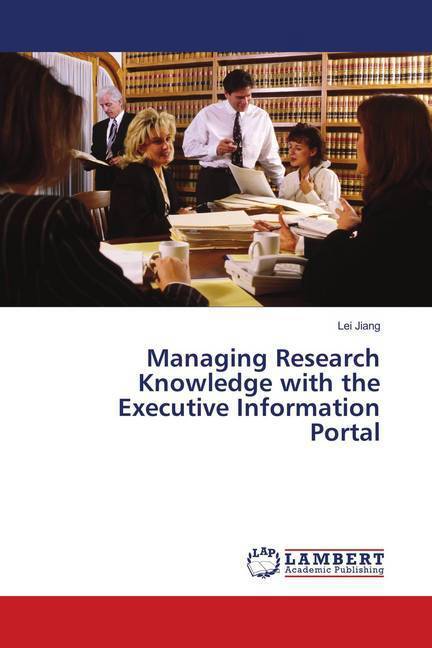
- Afhalen na 1 uur in een winkel met voorraad
- Gratis thuislevering in België vanaf € 30
- Ruim aanbod met 7 miljoen producten
- Afhalen na 1 uur in een winkel met voorraad
- Gratis thuislevering in België vanaf € 30
- Ruim aanbod met 7 miljoen producten
Zoeken
€ 48,45
+ 96 punten
Omschrijving
The Executive Information Portal (EXIP) is a prototype Enterprise Information Portal (EIP) developed at the University of Toronto. It aims at assisting knowledge workers with their daily work of finding, classifying, retrieving and annotating documents relevant to their task at hand. In this thesis, we extend the semantic modeling technique of the EXIP to the research domain and propose a new modeling method to capture implicit knowledge possessed by researchers. Using this extended modeling method, this thesis aims at improving the document retrieval and categorization component of the EXIP by adopting techniques from Natural Language Processing and Text Analysis. Specifically, we exploit a terminology-driven knowledge acquisition approach. A case study is conducted for an imaginary group of researchers in Computer Science. For the case study, we develop a semantic model using the proposed modeling method. Moreover, we implement a prototype in Java and evaluate it using various use scenarios.
Specificaties
Betrokkenen
- Auteur(s):
- Uitgeverij:
Inhoud
- Aantal bladzijden:
- 152
- Taal:
- Engels
Eigenschappen
- Productcode (EAN):
- 9783838311166
- Verschijningsdatum:
- 14/08/2009
- Uitvoering:
- Paperback
- Formaat:
- Trade paperback (VS)
- Afmetingen:
- 152 mm x 229 mm
- Gewicht:
- 231 g

Alleen bij Standaard Boekhandel
+ 96 punten op je klantenkaart van Standaard Boekhandel
Beoordelingen
We publiceren alleen reviews die voldoen aan de voorwaarden voor reviews. Bekijk onze voorwaarden voor reviews.











